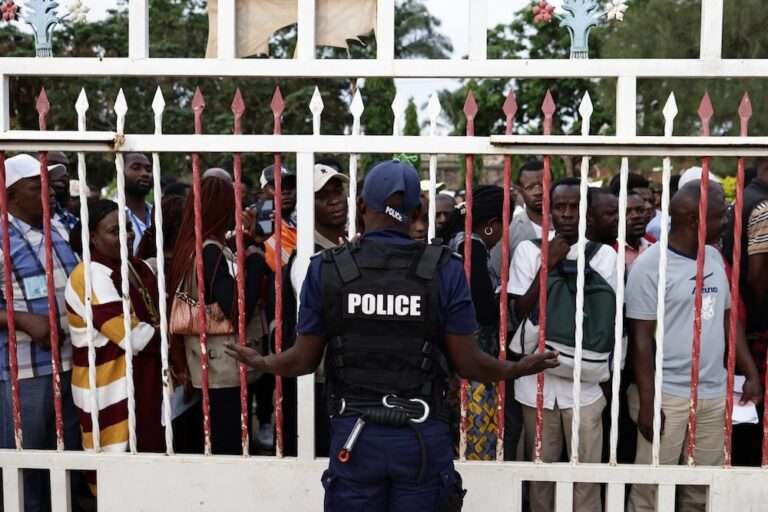On 28 September, the Media Institute of Southern Africa marked International Right to Information Day by launching Government Secrecy in an Information Age: 2014 Report on Open & Secretive Public Institutions in Southern Africa.
On Sunday 28 September, the Media Institute of Southern Africa (MISA) marked International Right to Information Day across the region by launching Government Secrecy in an Information Age: 2014 Report on Open & Secretive Public Institutions in Southern Africa by the Media Institute of Southern Africa.
This is the fifth year MISA has coordinated researchers from all over southern Africa to evaluate the openness and transparency of government and public institutions throughout the region. The result of the research is a published report and the awarding of the Golden Key to the most open government or public institution and the Golden Padlock to the most secretive government or public institution in each country where the research was conducted.
MISA Regional Director Zoe Titus said, “Despite ongoing campaigns, only three southern African countries have access to information legislation. This annual research demonstrates why it’s important that more countries develop legislation promoting and protecting the public’s right to government-held information.”
Research was carried out in eight southern African countries between May and July 2014. Researchers evaluated institutions’ websites, or lack thereof, and surveyed their willingness to engage with the public by sending out written requests for information and requesting information via telephone or in person.
One significant improvement MISA has observed over the past five years is an increase in institutions with websites and improved quality of these websites. This year, we were encouraged to see almost all surveyed institutions have some sort of online presence. We are also slowly starting to see institutions develop a social media presence.
Unfortunately the trend with regard to responses to written and oral information requests is not so positive. Most countries reported little to no improvement in this category over the years and Malawi had their worst results in the five years of research.
The number of African countries with access to information (ATI) laws currently stands at 14. This includes three southern African countries – Angola, South Africa and Zimbabwe. The number of countries with ATI laws more than doubled between 2011 and 2014, and yet not one southern African country enacted ATI legislation during this time. As more and more countries recognise the need for positive ATI laws, southern Africa continues to lag behind, denying their citizens the tools to access the information crucial to enabling them to make informed decisions about their lives, their communities and their governments.
“But the buck doesn’t stop with legislation,” said Ms Titus.
“While ATI legislation is an important tool to encourage governments to become more transparent, it is also the responsibility of each individual institution to make the choice and the effort to be more proactive in releasing information to the general public, both in terms of general information on their website and responding to requests for specific information.
“An informed and empowered citizenry is the basis of a strong and legitimate democracy, something every country should aspire to,” she said.
What is clear from MISA’s 2014 report, Most Open and Secretive Government Institutions in Southern Africa, is that public institutions in the region continue to improve with respect to the provision of information through information and communication technologies, but have been unable or unwilling to improve their ability to respond to public requests for information.
Please note, the Lesotho, Namibia and Swaziland sections of the report will be published by 3 October, after the Golden Key and Golden Padlock awards ceremonies have been held in these countries.
Foreword and Regional Overview
Botswana report
Malawi report
Tanzania report
Zambia report
Zimbabwe report



